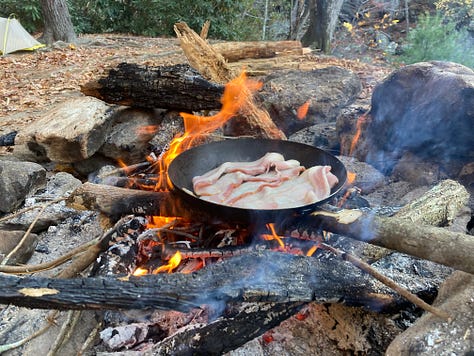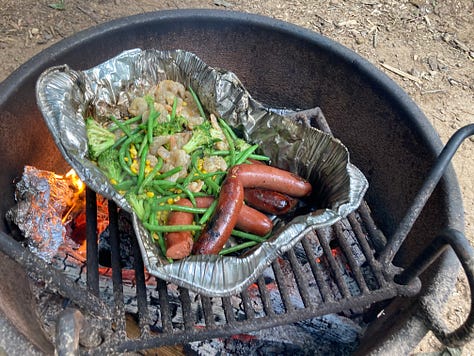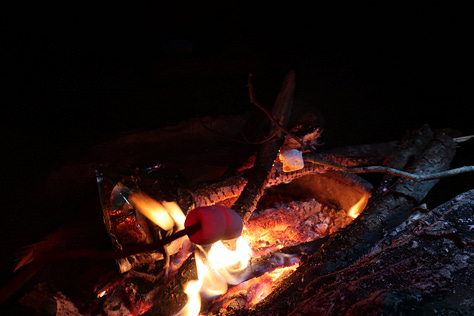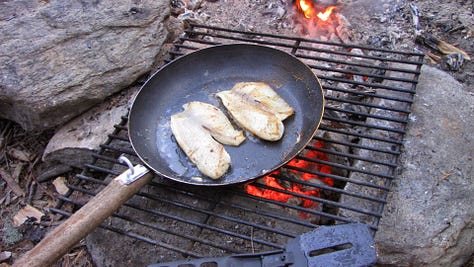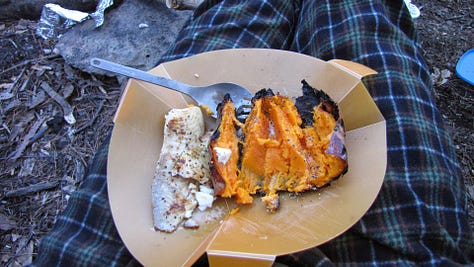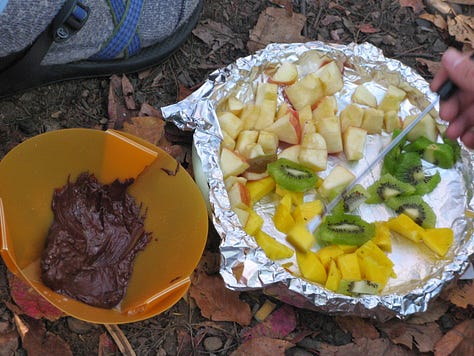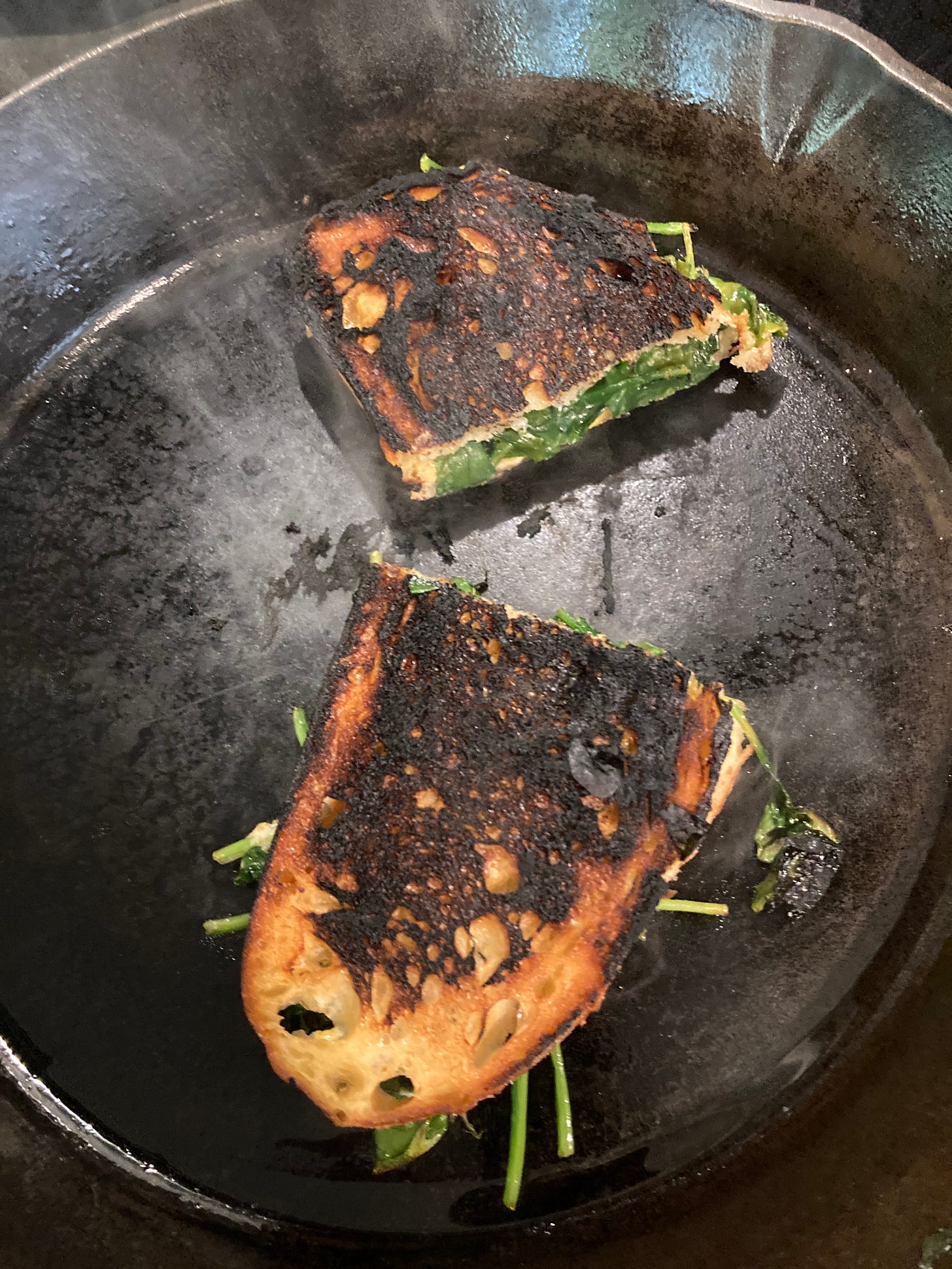Recently I made a grilled cheese sandwich: sourdough bread, sharp cheddar cheese, sautéed spinach, and a layer of mayo and horseradish mustard applied before cooking. Then fried on a cast iron skillet in heaps of fatty butter.
For me, this was going to be something to savor.
All was well until I picked up my phone and saw a video message from a friend. I was happy to hear from him. I drifted outside as I watched it. Then I began to record a response.
Three minutes into my response, I glanced inside and saw smoke from the pan.
One side of the sandwich was blackened and burnt. For a moment I wasn’t sure what to do with it, then I reminded myself that if I were camping right now, this would be delicious and satisfying. So I ate it, every bite. It was delicious and satisfying. Blackened grilled cheese is probably a menu item somewhere!
As I enjoyed my lunch, I noticed the progression that had just happened:
A quick shift in a perspective allowed me to enjoy food that in another context would have been unpalatable.
“If I were camping right now, this would be delicious.”
A simple reframing changed everything.
Camping, backpacking, and extended time spent outdoors have made it easier for me to quickly shift my perspective like that.
One of the requirements of backpacking—in which your whole house and everything you need is carried on your back—is a willingness to prune out familiar comforts.
The constant question: Can I leave this behind and still have a great time?
The answer is usually yes.
I have specific preferences about many things. I prefer not to eat burned food. And I know isn’t bad to like or prefer specific things. But I want to keep a loose grip—and not go into a tailspin when I’m stretched or pressed or forced to abstain.
That’s where I’m thankful for the practice of backpacking and camping, which presses me into familiarity of doing more with less and finding contentment without the usual comforts.
Practice — Take less. Manage less. Need less.
Result — Do more. Enjoy more. Travel .
Those practices—and others like them—can easily be pulled into the everyday life. All it requires is pausing to remember and reframe: “In a wilderness context, I would be tremendously grateful for [this thing]!”
How about you?
What’s a way you choose to reframe or release—in life or on the trail—in order live more freely and enjoy more fully?
Postscript
Full disclosure, and I want make this very clear: we eat well while backpacking.
Here’s a photo gallery of past food that I’ve cooked—including bacon, pancakes, trailside chocolate fondue, shrimp, sausage, sweet potatoes, pan fried tilapia, coffee, and more.
